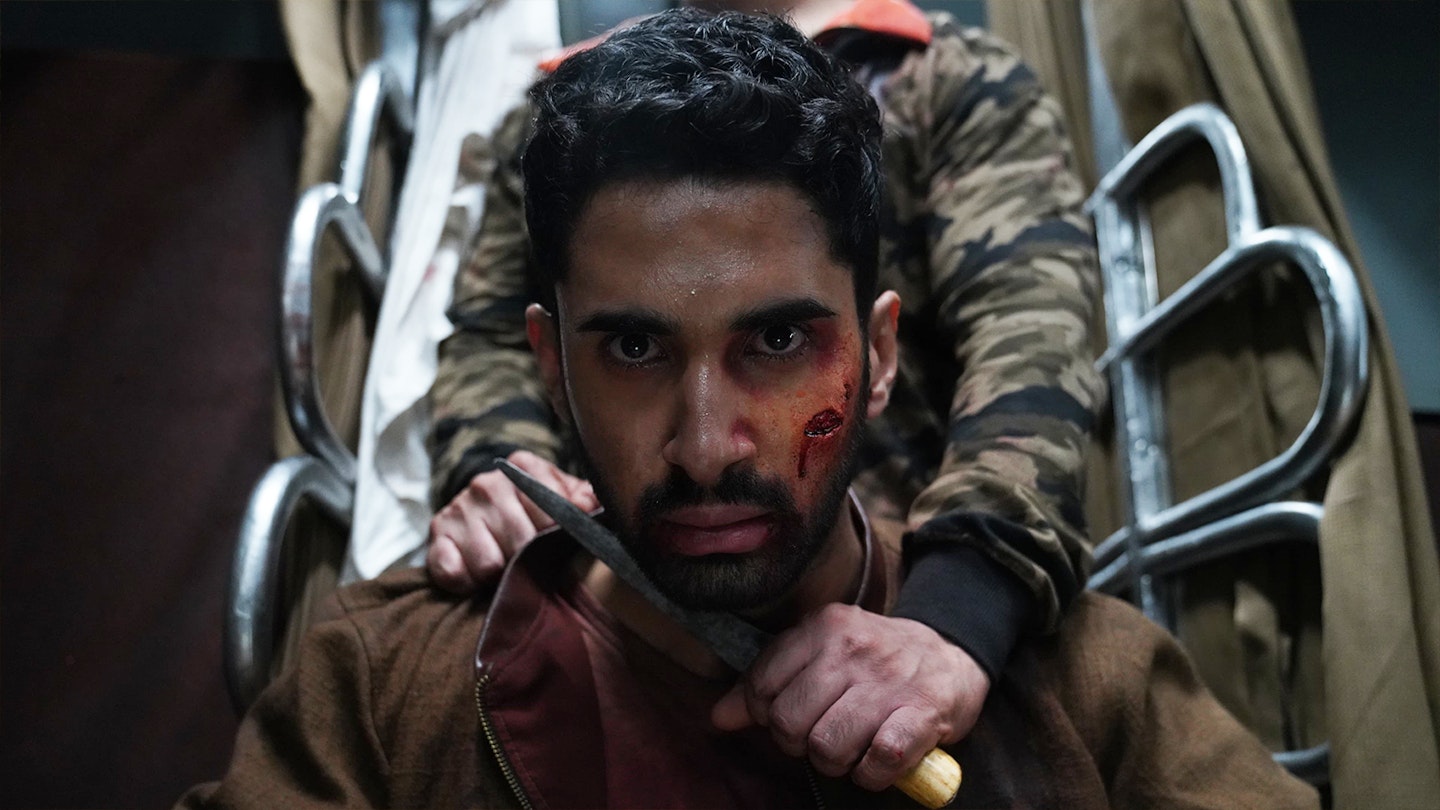Indian cinema — and in particular its perception here in the West — has been in the ascendant since RRR became a surprise smash hit in 2022. Kill, the Hindi-language new film from Nikhil Nagesh Bhat, feels nearly as significant as that epic: a thunderous action film that smashes expectations of what can come from the country’s powerhouse film industry.
As far as action goes, it is relentless. The obvious comparisons would be that it lands somewhere between the one-man-against-the-terrorists high-concept of Die Hard, the non-stop, expertly-staged ultraviolence of Gareth Evans’ The Raid, and the bloody, claustrophobic public-transport-disaster of Yeon Sang-ho’s Train To Busan. It’s visceral and contained, a smart genre exercise clearly influenced by specialists from around the world, but with a distinct Indian flavour.

Suggesting more of a ‘masala film’ approach, Kill begins in a melodramatic mould: Tulika (Tanya Maniktala) is to be married off against her will by her businessman father (Harsh Chhaya). But her true love is the heroic army commando Amrit (the mononymous Lakshya, introduced with a suitably Herculean close-up). This initial schmaltzy tone, typical of Bollywood, gets darker after the star-crossed couple declare their love to each other on a fast-moving train to New Delhi — a train that, unbeknownst to them, is about to be taken over by machete-wielding bandits.
The level of violence in this film, even for seasoned action viewers, is eye-popping.
As soon as the opening titles arrive — in the grand tradition of Indian cinema, nearly a full hour into the runtime — Kill shifts gears from a more generic thriller into a hard-nosed, bloodthirsty revenge flick. When tragedy hits Amrit, his focus intensifies, and so does that of writer-director Nikhil Nagesh Bhat. It could hardly be simpler: there are terrorists on a train, and a commando taking them on, each faction trying to kill each other in an increasingly gory manner, each taking turns to have the upper hand. Who even needs more in the way of a plot?
The level of violence in this film, even for seasoned action viewers, is eye-popping. There is brutal and effective use of prosthetics as skin and flesh is slashed up, gallons of claret are spilled, and inventive weaponry is utilised (look out for fire extinguishers and lighter fluid). Amrit takes on an entire army of seemingly unstoppable foes and — like Bruce Willis’s John McClane or Iko Uwais’s Rama – gets the absolute shit kicked out of him; you’ve heard of Thomas The Tank Engine, but these guys really are built like tanks. Yet the film almost always approaches the action seriously, and tries to take stock of the cost of violence to its characters, a rare rumination for this sort of outing. “Who kills like this?” asks one character of Amrit, towards the end of his warpath.
It’s not perfect: the ensemble cast is almost entirely male and sometimes ludicrously alpha, while the few female characters are largely treated like plot devices. And while the action is well-choreographed and coherent, the geography of the train as the characters switch between carriages is not always clear. But that is the sort of thing that becomes less important in a plot-light film like this. Kill, as you might expect, is simply about the kills. All aboard!
